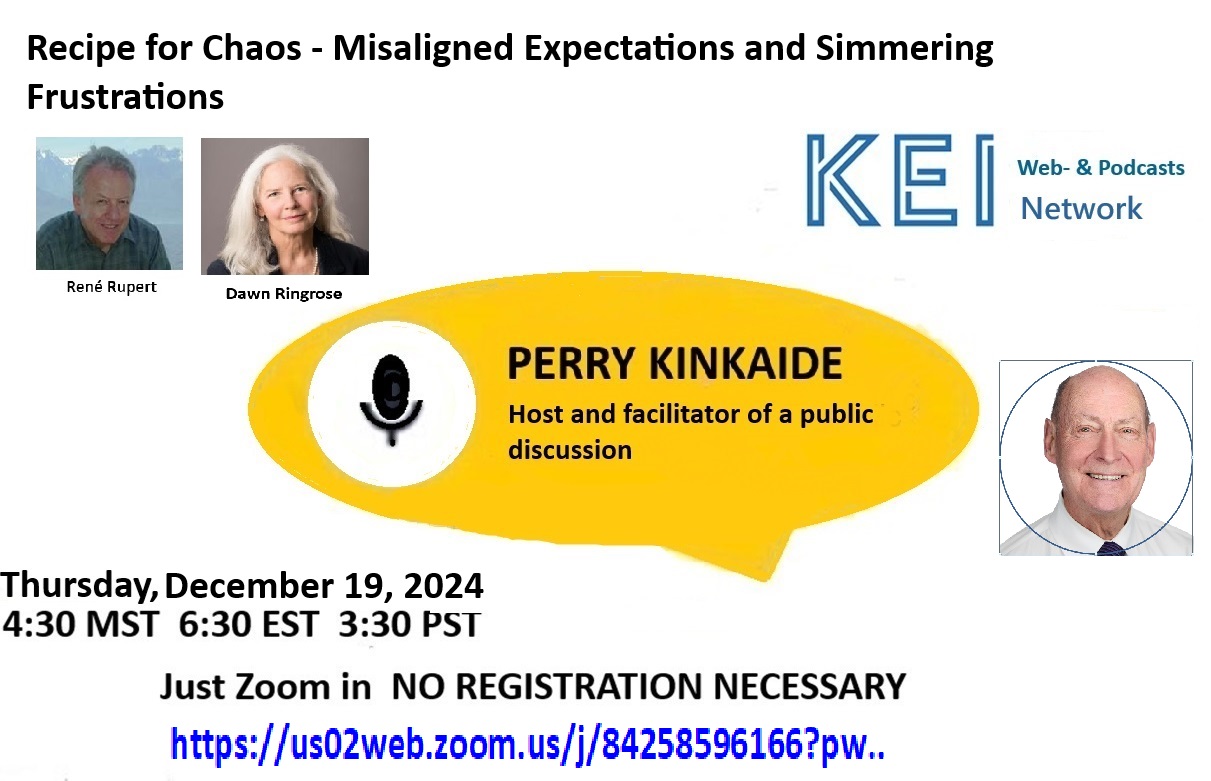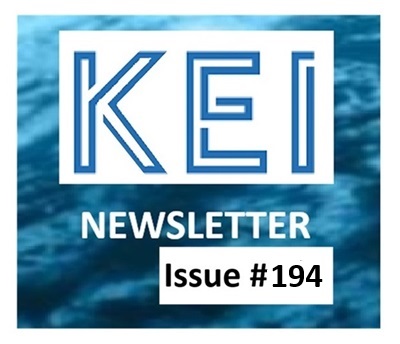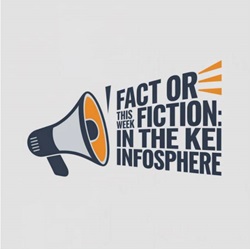|
The Great Unraveling: How the Pursuit of Progress Ignited Global Turmoil |
DIRECTORY | ||
|
Library: |
Action: |
|
|
Recipe for Chaos - Misaligned Expectations and Simmering Frustrations
In a world teetering between progress and disarray, the intersection of management principles and global crises underscores an urgent truth: misalignment between expectations and reality fosters chaos. From the boardrooms of multinational corporations to the global geopolitical stage, the inability to reconcile deterministic and undetermined frameworks of decision-making exacerbates simmering frustrations, spiraling into catastrophe.
 |
René Rupert's objective is Corporate Performance and innovation Enhancement and Owner’s Risk Reduction. He connects, inspires and energizes managers and their reports. He knows how to instil self-confidence, grow trust and the will to contribute. Observing repeated bigger failures inspired him to search for the fundamentals missing in our management thinking. Rene has studied mathematics, physics and chemistry in Paris; he got the MBA at INSEAD and certificates in applied psychology in Palo Alto. His managerial experience originates in LKAB, Sweden and DOW Chemical. In 1996, he gained psychometric expertise in Hewlett Packard, Palo Alto, Ca. before running the change management practice of KPMG in Zurich and his own research. He gave conferences in HRAC, Calgary 2002 and 2003, SHRM, Los Angeles 2003, and Europe. Since 2015, the company Imfusio in Paris, France is advising companies, basing on mindset maps. |
Misaligned Management: The Peril of Ignorance. The foundation of effective management lies in discerning whether a situation belongs to the deterministic world of certainties or the undetermined realm of human variables. The story of US Airways Flight 1539 exemplifies success through alignment—Captain Chesley Sullenberger’s decision to land on the Hudson River showcased a keen understanding of the risks inherent in undetermined conditions, prioritizing safety over calculated gambles. Conversely, the Challenger disaster illustrates the devastating consequences of applying misaligned frameworks; management gambled against the immutable laws of chemistry, a failure that led to tragedy.
Misalignment persists in business practices, as evidenced by General Motors’ misstep in incentivizing worker suggestions with bonuses. The approach failed to account for the human elements of creativity and intrinsic motivation, revealing a fundamental misunderstanding of the workforce's undetermined nature. This error reflects a broader issue—neglecting to align human mindsets with deterministic goals dissipates energy and undermines innovation.
Global Polycrisis: Chaos on the Macro Scale. The challenges of misalignment extend beyond organizational dynamics, engulfing the geopolitical and environmental arenas. Humanity faces what Peter MacKinnon referred to as a polycrisis—a confluence of socio-economic instability, environmental degradation, and governance failures. As nations grapple with the rapid degradation of natural resources, growing inequality, and political polarization, the stakes for alignment between policy aspirations and practical execution grow higher.
The climate crisis starkly illustrates this misalignment. While international agreements like the Paris Accord aim to curtail environmental destruction, the persistent prioritization of short-term economic growth over sustainability highlights the disconnect between goals and actions. The result? Mass migrations, regional conflicts, and a destabilized global economy.
Technological Advancement: The Double-Edged Sword. Technology offers a microcosm of the alignment challenge. Artificial intelligence, heralded as a transformative force, operates as a double-edged sword. Its potential for societal benefit is counterbalanced by its exploitation for disinformation and autocratic control. Without proper regulation, AI risks exacerbating existing disparities and fueling global instability.
The failure to align technological innovation with ethical and societal safeguards mirrors management errors on a grand scale. Just as GM’s bonus system failed to inspire meaningful engagement, unregulated AI development undermines trust and fuels polarization. - Continued below

The Path Forward: Aligning Frameworks for Stability. The dual crises of misaligned management and global turmoil demand a unified response. At the organizational level, leaders must bridge the gap between deterministic processes and the undetermined mindsets of their workforce, fostering environments where aspirations align with operational complexities. On a global scale, nations must embrace collaborative governance that transcends national interests, addressing crises like climate change and economic disparity through integrated action.
The lesson is clear: chaos ensues when expectations and realities diverge. The time for decisive, aligned action is now. Whether in the cockpit of a plane, the halls of corporate power, or the chambers of international diplomacy, alignment is the keystone to navigating uncertainty and averting disaster. Only by reconciling human aspirations with the deterministic constraints of our world can we chart a course toward stability and progress.
A Call to Action: Bridging Deterministic and Undetermined Realms. To prevent chaos from overwhelming progress, the alignment of deterministic structures with the undetermined nature of human behavior must become a priority. This requires a paradigm shift—recognizing that the deterministic world operates on fixed laws and predictable outcomes, while the undetermined world thrives on interpretation, adaptability, and human agency.
In management, this means understanding that processes designed for machines cannot simply be imposed on people. Managers must engage in meaningful dialogue, leveraging tools of communication and collaboration to align their teams’ aspirations with organizational objectives. The concept of “Flow,” described by Mihály Csíkszentmihályi, demonstrates the power of such alignment, where individuals channel energy efficiently and effectively when their perceptions match their aspirations. Conversely, misalignment leads to dissipation of energy, innovation, and productivity.
At a broader societal level, policymakers must act with urgency to align governance frameworks with the realities of interconnected global challenges. This involves redefining progress not as relentless economic growth but as sustainable development that balances environmental, social, and economic goals. As the world faces climate-induced migrations, technological disruptions, and demographic shifts, decision-makers must prioritize equity and resilience.
The Role of Technology and Ethics. Technological advancements like artificial intelligence underscore the necessity of alignment. To harness AI’s potential while mitigating its risks, governments and organizations must develop robust regulatory frameworks. These frameworks should address the dual-use nature of AI, ensuring its deployment serves humanity rather than exacerbating divisions or empowering authoritarianism.
Lessons from history—whether the Challenger disaster or GM’s incentive failure—show the perils of misapplied frameworks. The unchecked proliferation of technologies like AI without safeguards risks becoming another chapter in this cautionary tale. Leaders must proactively shape these tools to align with societal values, fostering trust and cooperation.
A Shared Responsibility. Addressing the misalignment at every level requires a collective effort. For organizations, this means empowering managers to understand and bridge the gap between deterministic systems and undetermined human needs. For nations, it requires strengthening international cooperation, fostering trust in democratic institutions, and investing in education and innovation that prepare societies for an uncertain future.
The urgency cannot be overstated. Misalignment, whether in a corporate strategy or in global governance, leads to inefficiencies, unrest, and ultimately chaos. But alignment—achieved through empathy, understanding, and collaboration—can unlock the potential for a more stable and equitable world.
Conclusion: Choosing Progress Over Chaos. The trajectory of our shared future hinges on a simple but profound truth: progress cannot be sustained without alignment. The interplay of deterministic and undetermined elements defines every aspect of human endeavor, from personal aspirations to global policies. By aligning expectations with reality, systems with people, and goals with ethical considerations, we can transform looming chaos into a pathway for innovation, resilience, and prosperity.
As we stand at this crossroads, the choice is clear. Will we continue to gamble against certainties and ignore the lessons of misalignment? Or will we rise to the occasion, fostering alignment that paves the way for a harmonious and sustainable future? The answer to this question will determine whether the coming decades are marked by progress or engulfed in chaos. The time to act is now. - René Rupert rene.rupert@insead.edu
Misalignment of Expectations and Political Upheaval: A Global Perspective
In the delicate contract between government and governed lies an unspoken agreement: the promise that leaders will meet the expectations of their people or at least manage those expectations responsibly. When this agreement falters, a powerful undercurrent of frustration begins to swell, transforming into a tide of unrest that no regime—no matter how seemingly secure—can resist. History offers us numerous examples of what happens when misaligned expectations lead to political upheaval.
The Fractured Promises of Tyranny. Tyrants are often deposed not because of their oppressive policies per se, but because their failure to deliver on economic stability or national pride lays bare the hollowness of their authority. Consider the case of Nicolae Ceaușescu of Romania. For decades, Ceaușescu ruled with an iron fist, touting his vision of a self-sufficient socialist utopia. Yet his policies, such as forced austerity measures and agricultural collectivization, plunged the country into economic despair. By 1989, as Romanians endured food shortages, power outages, and an ever-widening gap between state propaganda and daily reality, their collective disillusionment reached a breaking point. The revolution that followed was swift and brutal, with Ceaușescu and his wife executed on Christmas Day.
Another stark example is Muammar Gaddafi of Libya. After decades in power, both faced a populace disillusioned by corruption, repression, and the unfulfilled promises of wealth redistribution. The Arab Spring in 2011 catalyzed years of simmering frustration, and his violent suppression of protests only deepened the people's resolve. Gaddafi’s fall was emblematic of what happens when a leader loses touch with the needs and expectations of their citizens. Last week we witnessed in Syria the ousting of President Bashar al-Assad.
Democratic Erosions of Trust. Even in democracies, where the mechanisms for peaceful change are built into the system, misaligned expectations can provoke upheaval. The United States itself has seen instances where leaders underestimated the public's demand for action or misread the mood of the electorate. President Herbert Hoover’s inability to adequately respond to the Great Depression cost him the presidency in 1932, paving the way for Franklin D. Roosevelt and the New Deal. Similarly, in the United Kingdom, Winston Churchill—celebrated for his wartime leadership—was voted out of office in 1945 as voters demanded a leader who could rebuild their peacetime economy.
More recently, political upsets in Brazil and Italy demonstrate the volatility of democratic expectations. In 2018, Jair Bolsonaro rose to power in Brazil on a wave of anti-corruption and pro-security promises. By 2022, widespread dissatisfaction with his handling of the COVID-19 pandemic and environmental policies led to his electoral defeat. In Italy, Matteo Renzi’s ambitious constitutional reforms were decisively rejected by voters in a 2016 referendum, forcing his resignation as prime minister.
The Role of Technology in Amplifying Frustration. Modern technology has exponentially accelerated the cycle of expectation and disillusionment. Social media platforms amplify public grievances, providing a real-time outlet for citizens to voice dissatisfaction and organize protests. This dynamic played a critical role in the Arab Spring and continues to challenge authoritarian regimes worldwide. However, the same platforms also expose democratic leaders to unprecedented scrutiny, leaving little room for error or obfuscation.
Lessons for Leadership. The lesson is clear: managing public expectations is as vital as delivering tangible results. Leaders must be transparent about what is achievable and acknowledge the challenges ahead, rather than overpromising and underdelivering. Economic inequality, climate change, and public health crises are global challenges that require thoughtful and honest communication. When leaders fail to align their vision with the lived reality of their constituents, they risk losing not only elections but also the social contract that underpins their authority.
History has shown us that frustration is not easily suppressed. It is a force that grows quietly, often unnoticed, until it erupts in ways that reshape nations and topple leaders. From the palaces of tyrants to the halls of democratic power, no leader is immune to the consequences of misaligned expectations. The question is not if frustration will emerge, but when—and whether leaders will have the foresight to address it before it is too late.
![]()

